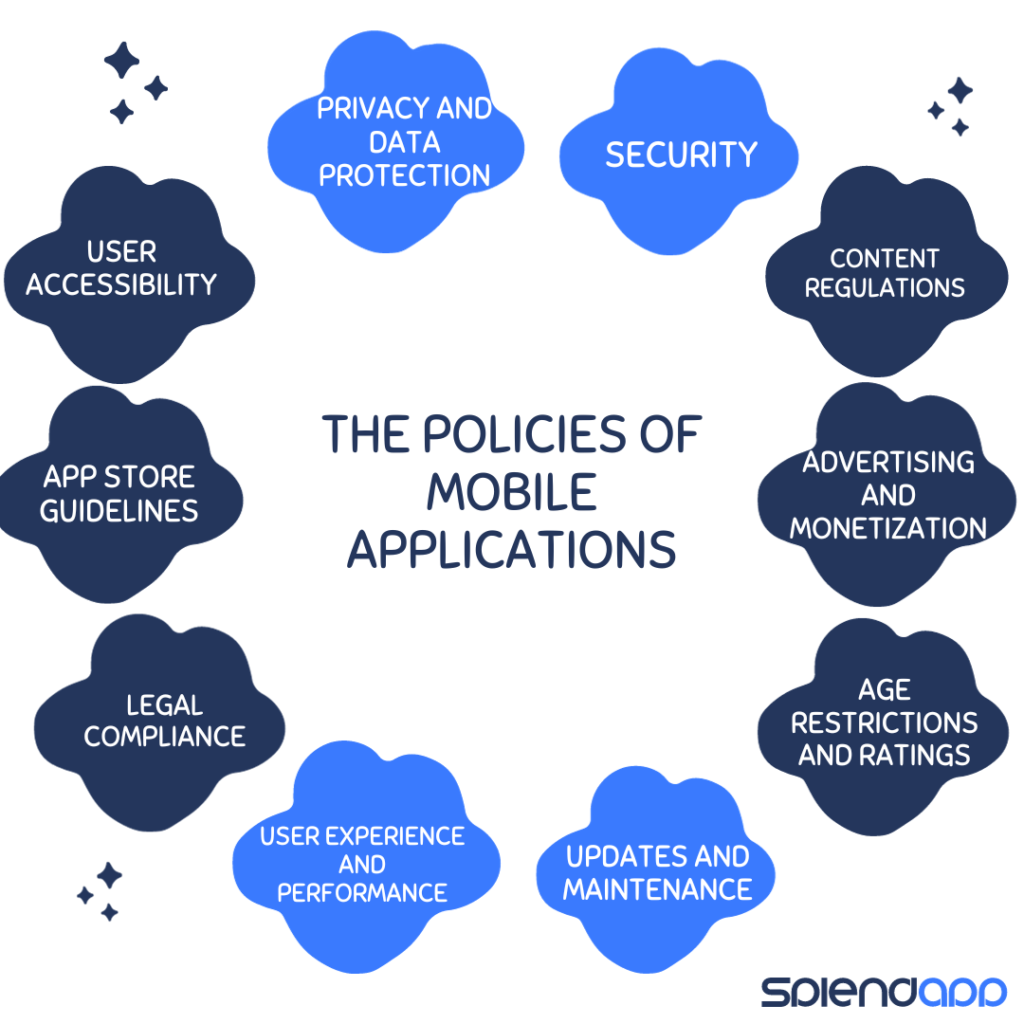

The realm of mobile applications is a continuously evolving landscape, characterized by its rapid pace of innovation and technological advancement. In this dynamic environment, the implementation of well-defined policies is crucial. Policies Of Mobile Applications are not just guidelines for development and operation, but they also serve as a framework that shapes the entire lifecycle of mobile applications, from conception to deployment and beyond.
The policies governing mobile applications encompass various aspects, including data privacy, security protocols, user accessibility, content regulation, and adherence to legal and ethical standards. They are designed to protect the interests of all stakeholders involved: developers, users, regulatory bodies, and the platforms hosting these applications.
Moreover, these policies play a pivotal role in ensuring that mobile applications meet the highest standards of quality and reliability. They help in navigating the complexities of app store regulations, copyright and intellectual property laws, and the diverse global market requirements.
In essence, the policies of mobile applications are foundational to maintaining a healthy digital ecosystem. They not only facilitate innovation and creativity in the app development process but also ensure that the end products are secure, user-friendly, and compliant with global standards. As such, understanding these policies is essential for anyone involved in the development, distribution, or use of mobile applications.

Understanding the policies of mobile applications is essential for developers, businesses, and users alike. These policies govern how apps are developed, distributed, and used, ensuring they meet certain standards and regulations. Here’s everything you need to know about these policies:
Privacy and Data Protection: Policies regarding user data are critical. Apps must adhere to laws like GDPR in Europe and various privacy acts worldwide, ensuring user data is collected, stored, and used responsibly.
Security: Mobile apps must follow robust security protocols to protect users from data breaches and cyber threats. This includes securing user data, implementing strong authentication mechanisms, and regularly updating security features.
Content Regulations: Apps must comply with content guidelines set by app stores and regulatory bodies. This includes avoiding offensive content, respecting intellectual property rights, and ensuring content is appropriate for the targeted audience.
User Accessibility: Policies often mandate that apps be accessible to users with disabilities. This includes features like screen readers, voice control, and other accessibility tools.
App Store Guidelines: Both Google Play Store and Apple App Store have specific guidelines and policies that apps must meet to be listed. These include design, functionality, and content standards.
Advertising and Monetization: Policies dictate how apps can generate revenue. This includes rules on in-app purchases, subscriptions, and advertisements, ensuring transparency and fairness for users.
Legal Compliance: Apps must comply with the legal requirements of the countries they operate in. This includes laws related to copyright, consumer protection, and more.
User Experience and Performance: App policies also focus on providing a high-quality user experience. This includes having a user-friendly design, good performance, and minimal bugs.
Age Restrictions and Ratings: Apps must follow policies regarding age restrictions and ratings, ensuring content is suitable for the intended age group.
Updates and Maintenance: Regular updates and maintenance are often required to keep apps functional, secure, and up-to-date with the latest standards and user expectations.
User Feedback and Reviews: Responding to user feedback and managing reviews is also governed by certain policies, which can influence app updates and improvements.
Cross-Platform Compatibility: Apps are often required to be compatible across different devices and operating systems, ensuring a broad user base.
Ethical Considerations: Ethical policies are in place to prevent misuse of technology, such as avoiding manipulative design practices or respecting user choices.
By adhering to these policies, mobile applications can provide secure, efficient, and enjoyable experiences for users, while also ensuring legal and ethical compliance. For developers and businesses, understanding and implementing these policies is key to creating successful and sustainable mobile applications.
In conclusion, the policies of mobile applications constitute a fundamental framework that governs the development, distribution, and operation of apps in the digital ecosystem. These policies, encompassing aspects like privacy, security, content regulation, user accessibility, and legal compliance, are critical for ensuring that mobile applications meet the highest standards of quality, safety, and user experience.
For developers and businesses, a thorough understanding and adherence to these policies are vital for the successful creation and maintenance of mobile apps. Not only do these policies ensure compliance with legal and ethical standards, but they also play a crucial role in building user trust and satisfaction, which are key to the long-term success of any application.
For users, these policies provide a layer of protection, ensuring their data is handled responsibly, their rights are respected, and they have a safe and enjoyable app experience.
Overall, as the mobile app industry continues to grow and evolve, staying informed and compliant with these policies is essential for all stakeholders involved. Whether you are developing an app, running a business that relies on mobile technology, or simply downloading and using apps, being aware of these policies helps navigate the ever-changing landscape of mobile technology more effectively and responsibly.
You can Read more about the upcoming Trends in the Mobile App Industry that will help you in the designing and developing your Mobile Applications process.